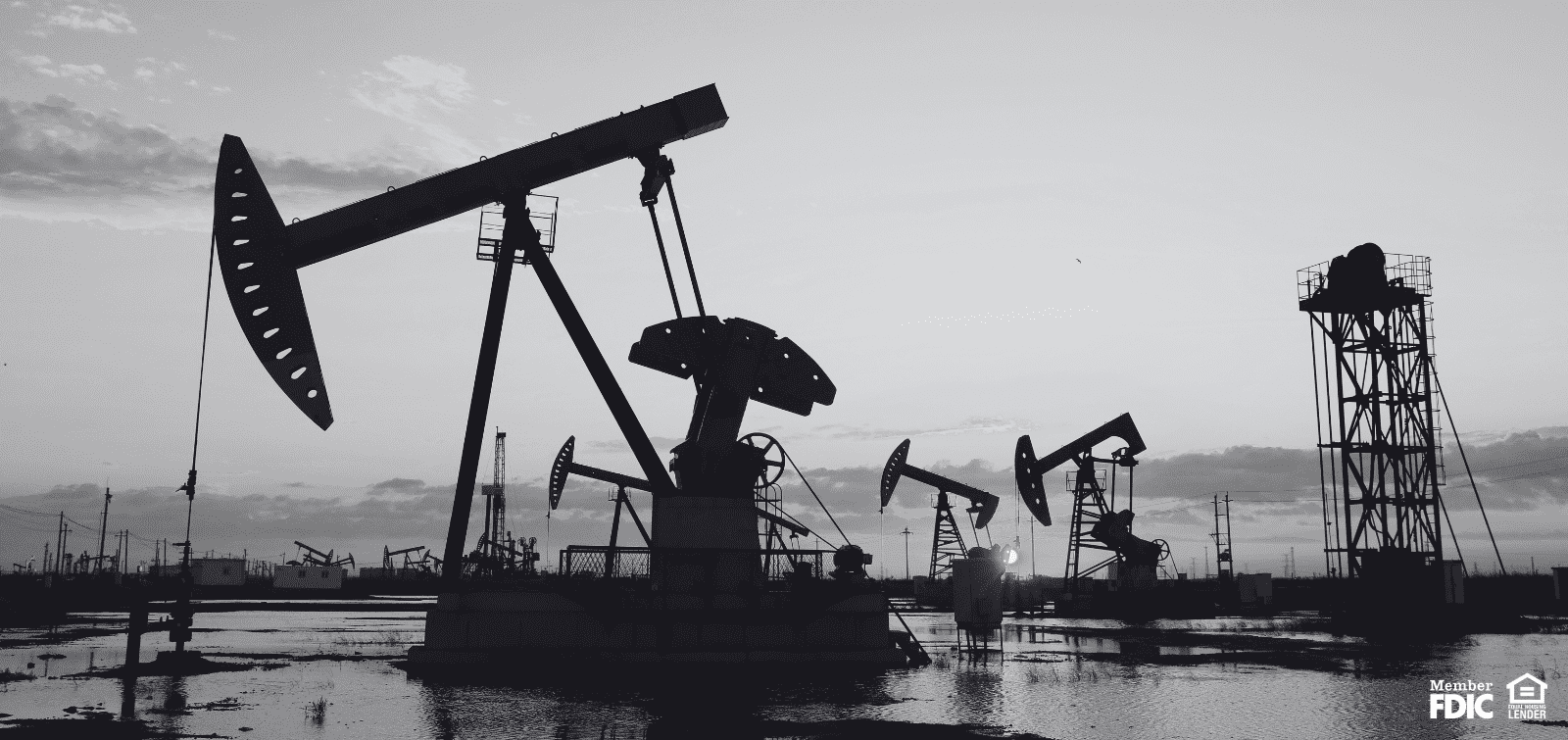
Banking from your phone?
Download our app
Welcome Back
You can access your accounts here.

Banking from your phone?
Scan the code to download our app.

featured
2023-10-27
Culture
published
Gas Price Volatility: The Cost of Conflict

-
Gas prices have always been a source of concern for Americans. Why? Because the cost of fuel isn’t just a number at the pump. It’s a force that ripples through every aspect of our lives. It affects where we go, what we buy, and how we budget. Our driving habits, the cars we choose, and even the places we call home are all shaped by shifts in the price of gas. When fuel becomes more expensive, it often means cutting back on other necessities.
According to the New York Times, this concern is amplified by the sprawling layout of the United Sates, where public transportation options are limited. Many Americans don’t have an alternative to driving, even when gas prices surge. We find ourselves tied to our vehicles, having to buy a certain amount of gas to keep up with our daily routines, no matter the cost.
As recent conflicts unfold in the Middle East, Americans are left wondering how to navigate and prepare for unpredictable gas prices. To tackle this issue, let's first discuss how gasoline prices are determined and influenced by global events.
What determines gas prices?
More than half the cost of filling your tank is influenced by the price of crude oil, which is largely determined by international supply and demand. According to Energy.Gov, the rest of the price at the pump is split between refining costs, marketing and distribution, and taxes.
Despite being the world’s largest oil producer, the United States still brings in more oil from other countries than it sends out, with a majority coming from Canada, Mexico, and Saudi Arabia. America's reliance on imports provides the global crude oil market with the central role in shaping US gas prices. This connection between global crude oil dynamics and domestic gas prices is crucial to understanding the price tag we see at the pump.
According to the U.S. Energy Information Administration, gasoline prices can change rapidly if something disrupts crude oil supplies, refinery operations, or gasoline pipeline deliveries. Even when crude oil prices are stable, gas prices fluctuate because of seasonal changes in demand, taxes, and gasoline specifications.
As we are aware, global events can largely impact the price of fuel. Conflicts in oil-producing regions and international agreements/disagreements can influence the stability of oil supplies and, by extension, gas prices. One major global oil-producing region is the Middle East, with several of its countries contributing significantly to the world’s oil supply. When conflicts take place in this region, they quickly capture the world’s attention and draw the focus of global economists.
Will conflicts in the Middle East affect gas prices?
As reported by The Guardian, it’s worth noting that oil and gas production and transportation have remained relatively unscathed despite the most recent turmoil in the Gaza Strip. However, just because the price of oil hasn’t changed yet, it doesn’t mean that it won’t soon. The situation evolves each day it continues.
While neither Israel nor Palestine are key oil producers, their dispute sits on the doorstep of a major oil-producing region. CNBC explains that the conflict’s overall impact on global and gas prices will likely remain limited “as long as no third parties from inside or outside region become involved.” For instance, should major players like the United States, Iran, or Saudi Arabia decide to enter the fray, the situation could change significantly.
While the United States doesn't directly purchase oil from Iran, any potential involvement by Iran in the escalating conflict could still have a ripple effect on gas prices in the United States due to several interconnected factors. As detailed by the New York Times, any disruptions to oil production and transportation in the broader Middle East region can send shockwaves through global oil markets. This disruption can result in increased international oil prices, which in turn have a direct impact on gas prices in the United States.
Saudi Arabia is also a big player in the world of oil. They're one of the largest oil producers globally and among the top five sources of oil imports for the United States. If the situation in the Middle East escalates and involves Saudi Arabia, their oil production may take a hit. Specifically, logistical challenges typically associated with war—damage to oil facilities and personnel evacuations—are key factors here. Furthermore, Saudi Arabia doesn't just produce oil; they also send it all around the world through pipelines, ports, and shipping routes. If these exports get disrupted due to the conflict, it could have a major impact on oil availability in many places, including the United States.
What adds another layer to this is that Saudi Arabia has been voluntarily cutting its oil production by 1 million barrels each day. They made this decision back in July, and they might continue until the end of the year. This means the recent conflict in the Middle East is happening at a time when oil production is already being reduced, which makes the situation even more complex.
How can I spend less on gas?
While we as individuals may not wield influence over the ongoing conflict or the resulting shifts in gas prices, we can still take steps to save whenever we can. One strategy is participating in a program designed to cut down your gas expenses.
Enter Armed Forces Bank, which has recently introduced Fuel Savings1 as an exclusive benefit for Access Rewards Checking account holders. This loyalty program is designed to reward account holders with cents-per-gallon discounts for every fill-up at participating Shell stations. When you activate this offer, you save 5¢/gal at the pump.
So, even as global events unfold and uncertainty looms, you can take control of your own savings and enjoy some relief at the pump. Armed Forces Bank's Fuel Savings program is here to help you navigate the challenges of fluctuating gas prices, ensuring you can save where it matters most.
Member FDIC
1Restrictions apply. See AFBank.ClubChecking.com for details.
|
INSURANCE DISCLOSURE: Insurance products are NOT insured by FDIC or any Federal Government Agency; NOT a deposit of or guaranteed by the bank or any bank affiliate. Coverage is provided through the company named in the Guide to Benefit or on the certificate of insurance. |